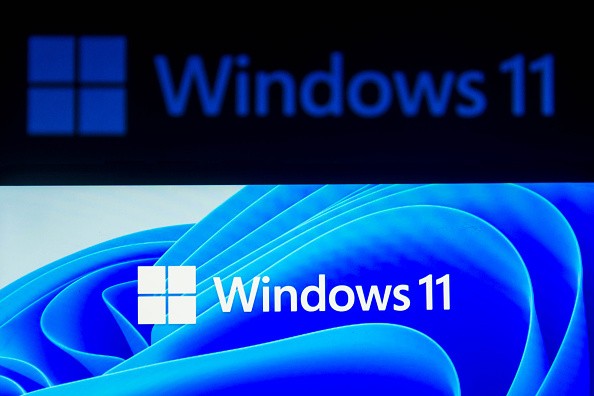If Windows 11 were installed on what Microsoft says is an unsupported device, they say it's not going to get some official security updates. But apparently, this isn't true.

BRAZIL - 2021/07/04: In this photo illustration the Windows 11 logo seen displayed on a smartphone. It is a major version of the Windows NT operating system.
Digital Trends reports that any device classified as unsupported for Windows 11 will still receive at least a few official driver and security updates. But not all of them, though.
This was discovered when Digital Trends writer Jacob Roach booted up his Dell XPS 15 laptop. The device, which features an Intel Core i7-7700HQ, managed to install a few .NET framework, driver, and security updates much like a supported Windows 11 computer.
The i7-7700HQ is a 7th gen Intel chip. This makes it technically unsupported, since Microsoft said that Windows 11 will only be available for 8th generation Intel (and 2nd generation AMD Ryzen) CPUs onward.
Microsoft made quite a stir when they revealed the system requirements for Windows 11, which a lot of users considered steep.
A lot of people's computers can technically crack these hardware specs:
-
At least a dual core CPU with a minimum clock speed of 1 GHz
-
4GB of RAM
-
64GB HDD space
-
DirectX 12 compatible graphics
-
Minimum display resolution of 1366x768
But the problem was Microsoft's inclusion of a TPM 2.0 module, which caused confusion when folks were instructed to install the company's PC Health Check app.
Upon installing the app, those who didn't have TPM enabled were told that their devices cannot run Windows 11, even if the actual hardware in it far surpasses the minimum specifications.
Read also: How To Check if Your Computer Has TPM Enabled for Windows 11
A Temporary Arrangement?
It seems like the updates are temporary for now. Windows Central reports that while Microsoft confirmed unsupported devices won't be entitled to updates, they didn't really specify whether the devices will still receive said updates.
This news comes after it was reported by The Verge that Windows 11 can still be installed on older PCs manually, all by downloading an ISO file. By "old", this means any computer featuring an Intel system 7th gen or older, and an AMD Ryzen 2000 series system or older.
Future Windows 11 Updates Are Still Coming
Microsoft just released Windows 11 for compatible devices last October 5, when the OS hit "general availability." Not all devices, however, got it at the same time.
According to CNET, the main reason is Microsoft's careful approach to the release of the new OS. The company made it clear that new, supported devices will be first in line, with everything else getting the free upgrade offer starting October up to mid-2022.
Maybe Microsoft will roll out updates that could hard-lock unsupported devices from critical updates in the future. But until then, this is still unconfirmed, and everything seems to work well enough for both supported and unsupported machines.
For those who have already installed the new Windows OS, though, some of you may have seen a concerning pop-up warning of "possible damage" to unsupported devices.
To be on the safe side, it would be best to just heed Microsoft's warning and get your PC a much-needed upgrade.
Related: Windows 11's Speed Isn't About the Hardware, Says Microsoft
This article is owned by Tech Times
Written by RJ Pierce









